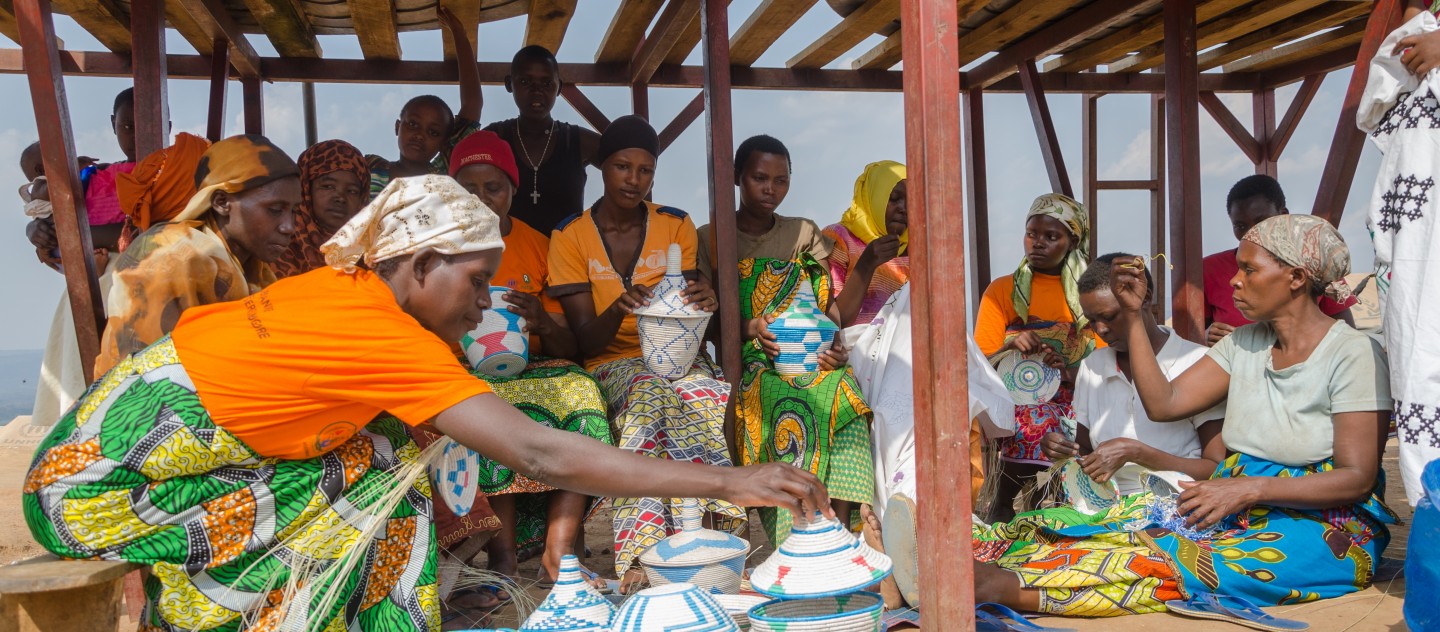In UNHCR’s Global Strategy for Livelihoods 2014-2018, building self-reliance is considered essential through all phases of displacement. Our mission is to facilitate enabling environments where resourceful people can fulfill their potential to contribute to economic development of their community.
In Rwanda, UNHCR works with the Ministry of Disaster Management and Refugees Affairs (MIDIMAR) towards implementing a joint strategy for Economic Inclusion of Refugees to further economic development in host communities through refugee self-reliance. Such economic inclusion of refugees will be beneficial to local rural development, but requires strong engagement of donors, the private sector, financial institutions as well as refugees and host communities to build the economy to create additional jobs and greater opportunities for all. UNHCR works with MIDIMAR to leverage support for long-term, development-oriented initiatives that are in line with the commitments made by Rwandan Government at the Leader’s Summit on Refugees in New York, notably in relation to the expansion of refugees access to formal employment and self-employment.
- Who are refugees?
People with marketable skills and assets, who have a strong motivation to build their own livelihoods.
- The right to work in Rwanda
The Government of Rwanda has adopted among the most progressive policies worldwide to support refugee self-reliance. This enabling legal and policy environment includes refugees having freedom of movement and the right to work. The Government has also promoted the financial inclusion of refugees through explicit reference to refugees in the National Financial Inclusion Strategy of Rwanda. With the progressive introduction of cash-based assistance in the camps of Rwanda, UNHCR anticipates that refugees will gradually become fully financially included and through this contribute even more to the economic development of their host communities.
- What is the impact on the economy of Rwanda?
Refugees are capable of making a positive economic contribution as producers, consumers, employers and employees. Such economic participation also allows refugees to regain their dignity and independence, and enables them to live normal lives in peaceful coexistence with their host communities.
Below are specific studies quantifying the positive economic impact of refugees on their host communities:
Refugees Create Jobs for Rwandans: ‘The Local Economic Impact of Hosting Refugees: The Case of Congolese Refugees in Rwanda’ Maastrich Graduate School of Governance
Refugees Increase Rwandan GDP: ‘Economic Impact of Refugees’ University of California Davis

